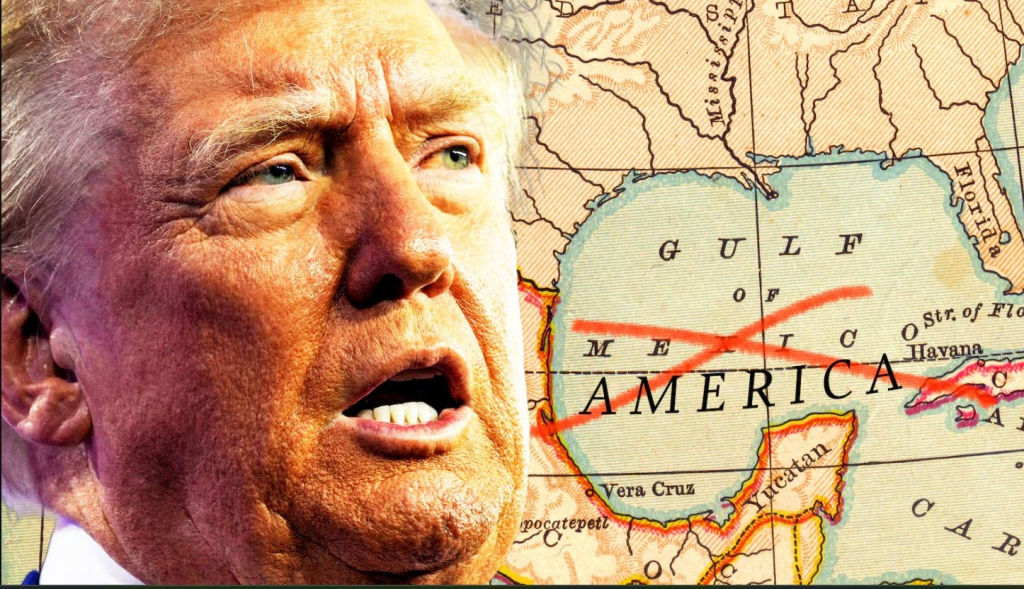
Antonio Navalón
There are times when a simple proposition, statement, or definition manages to encapsulate the historical situation we are living in in a unique way. We have gone beyond the times when the search for moderation, the absence of confrontation, and the avoidance of using war as a political tool prevailed. The use of diplomacy to avoid confrontation has been left in the past and is now part of the people’s collective memory.

Today, we can identify a constant in human behavior: the belief that those who govern us will not dare to do such things, especially those we did not vote for or who seek only the fulfillment of their interests.

Innocently and naively, we assume that those leaders will not be able to carry out all their threats, and we console ourselves with the thought that the worst will never happen. We think that the instinct of self-preservation and the desire to maintain power will be enough to dissuade them from adopting extreme positions or solutions. However, history is full of examples to the contrary.

Who would have imagined that technological development, initially conceived to preserve lives, would eventually give the Prussian Empire—and later Germany—the technological hegemony needed to destabilize decadent empires such as the Austro-Hungarian or Ottoman empires through unprecedented machine guns and cannons?

Between 1914 and 1918, the Germans sought to build the “Thousand Year Reich”. It was not to be; they lost. True, narrowly, but they did. Also, narrowly, they lost again in World War II. In any case, all those who thought that their threats – which were not only against the Jews but against the whole world – would not come true were wrong. They did come true, and they did so by making clear their great destructive capacity.

Today, Donald Trump is about to begin a new chapter in American history. His approach, unprecedented in modern politics, has liquidated the appeasing elements that some of his predecessors – such as Jimmy Carter – tried to promote and maintain. Carter was a lousy U.S. president and one who cannot be omitted for his failure to allow and facilitate the rise of Ruhollah Khomeini to power in Iran.

Jimmy Carter was not only the president of the hostages – remembering the Iranian assault and invasion of the US Embassy – but he was also the president who signed the Torrijos-Carter Treaties that returned control of the Panama Canal to the Panamanian government after 96 years of occupation by the Americans. And all for the modest price of one dollar.

I don’t know how much history Donald Trump knows or how much he cares. With all that is happening, what is evident is that there are historical details that should not be forgotten.

Panama – a country that subsisted thanks to the Canal and not the other way around – was largely the fruit of the vision of President Theodore Roosevelt, who was instrumental in both the country’s independence and the construction of the Canal. When Colombia rejected a treaty to cede the Isthmus, Roosevelt backed Panamanian independence in 1903, using the U.S. military presence to prevent Colombian intervention.

After Panama’s independence, the United States signed the Hay-Bunau-Varilla Treaty, which granted control of the Canal Zone. Roosevelt promoted the canal’s construction as a strategic project to connect the Atlantic and Pacific oceans, a key element in strengthening the United States’ economic and military power. Thus, Panama was born.

What will Trump do with strategic territories such as Greenland or the so-called “Gulf of America”? His strategy seems clear: first, cannons; then, politics. As Clausewitz said, “War is the continuation of politics by other means”. However, for Trump, war is not a continuation; rather, it is the starting point. For him, diplomacy only applies when the force fails to meet its objectives.

These were decades in which Americans sat comfortably, enjoying their hegemonic status. Decades in which they delegated everything to Chinese eager to work and do everything the Americans were unwilling to do. Today, China has woken up and is seeing the fruits of its labor and strategy.

China has consolidated its global influence. It has gained increasing presence and influence in different parts of the world and has emerged as the only serious competitor to the United States.

Trump’s tariff threats are the least of it. In the midst of his speech and rhetoric, it remains unclear at what point the CUSMA/USMCA/T-MEC and everything agreed upon was buried. It seems that for the U.S. president-elect, the only economic agenda is imposing tariffs and trade restrictions or punishment to gain benefits.

Trump understands that cutting off the enemy’s capacity for economic growth is essential for U.S. supremacy. However, this strategy does not just target economics; the undercurrent is deeper.

If we start with war but do not end with war, we must know that what awaits us are not days of thunder but living inside a tornado, where—at the very least—the doctrine and philosophy that guided the United States since the end of World War II are being buried and brought to an end.

Mexico is no stranger to this whole situation. In addition to cartels, tariffs, and Trump’s constant threats, Mexico now faces a major problem as our internal reality poses a danger to U.S. internal security. The shared border of thousands of miles has gone from a connecting line to an excuse to justify possible direct intervention.

Donald Trump consistently dominates headlines and slogans, although he sometimes gives the impression of lacking a clear strategy. Unlike him, his close associate Elon Musk always seems to take a strategic approach. He is oriented to the benefit of his business and seeks to stay one step ahead, visualizing the most favorable scenario. One could almost say that what is good for Musk is good for America. How long this will be sustainable and whether it will last over time remains to be seen.

We cannot forget that, for example, during Roosevelt’s presidency, the United States clearly understood that its support for the Panamanian independence process was closely tied to the future and potential success of the construction of the Panama Canal. That said, U.S. leaders have always sought to leverage and maximize the alignment of interests. Will this be the case in Trump’s relationship with Musk?

Welcome to the era of the greatest global confrontation since 1914. Trump has nothing to lose. According to the U.S. Constitution, Trump cannot seek a third term; however, that does not prevent him from calling a referendum or implementing some strategy that would allow him to remain in power. In any case, until the conflict between his partner Elon Musk and him breaks out, Trump could even be the first president to reach Mars.

History teaches us that every decision has a profound impact. We live in times when politics and war seem inseparable, and the future is uncertain. We can only prepare for the tornadoes to come because thunder is no longer a metaphor; it is the reality in which we are immersed.

Further Reading:
